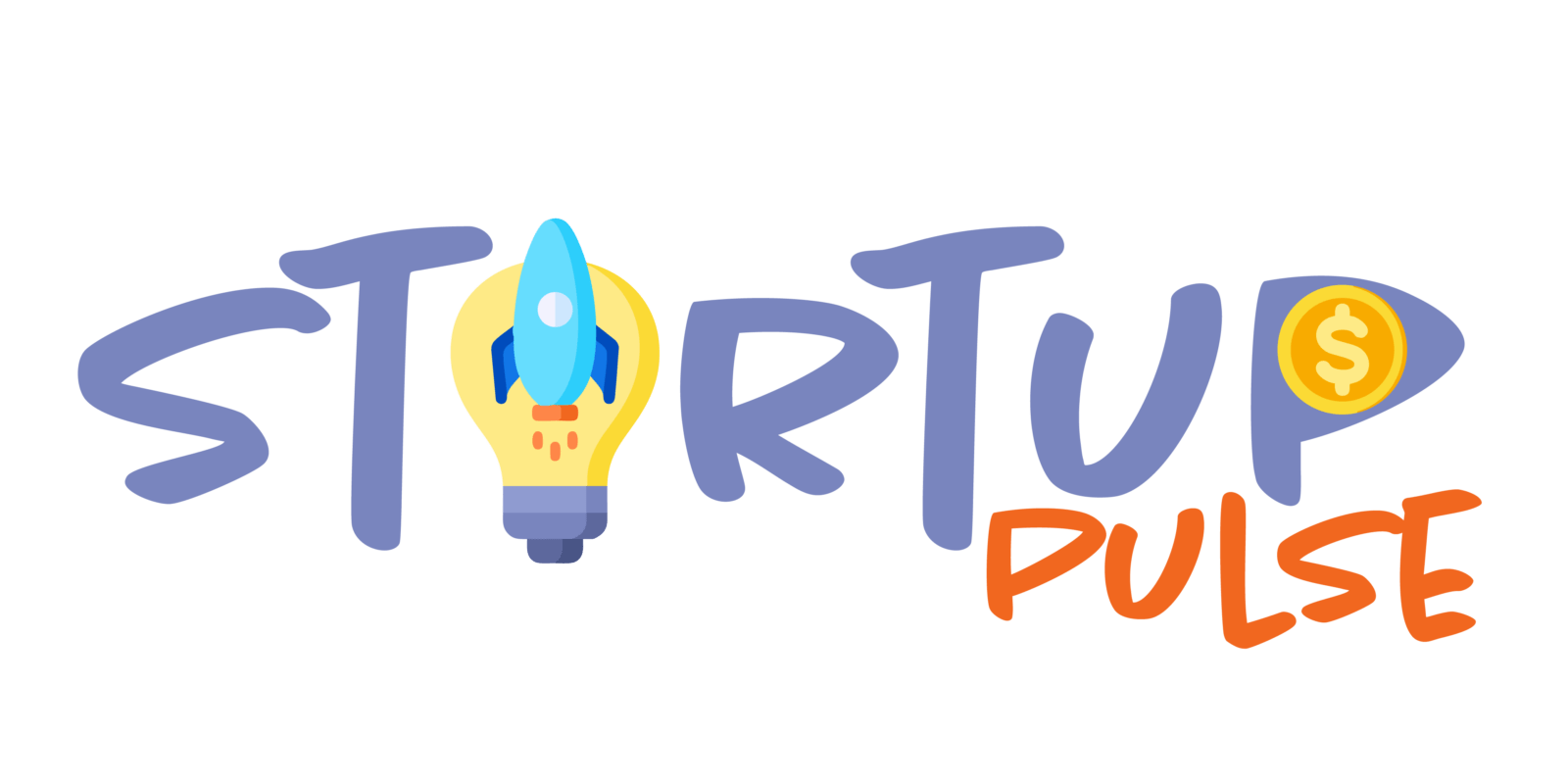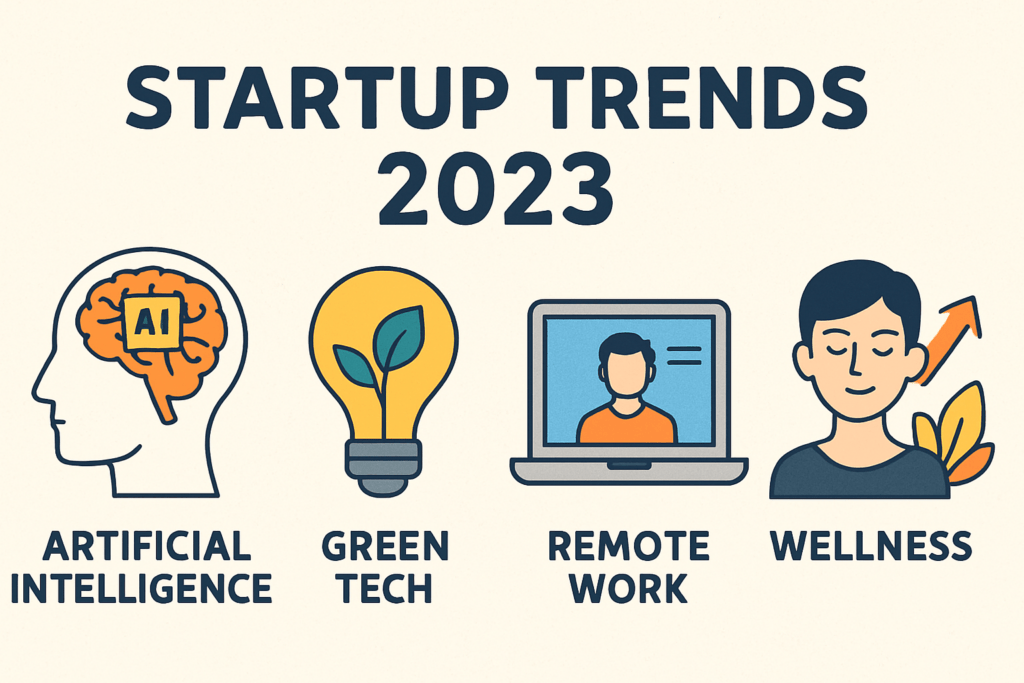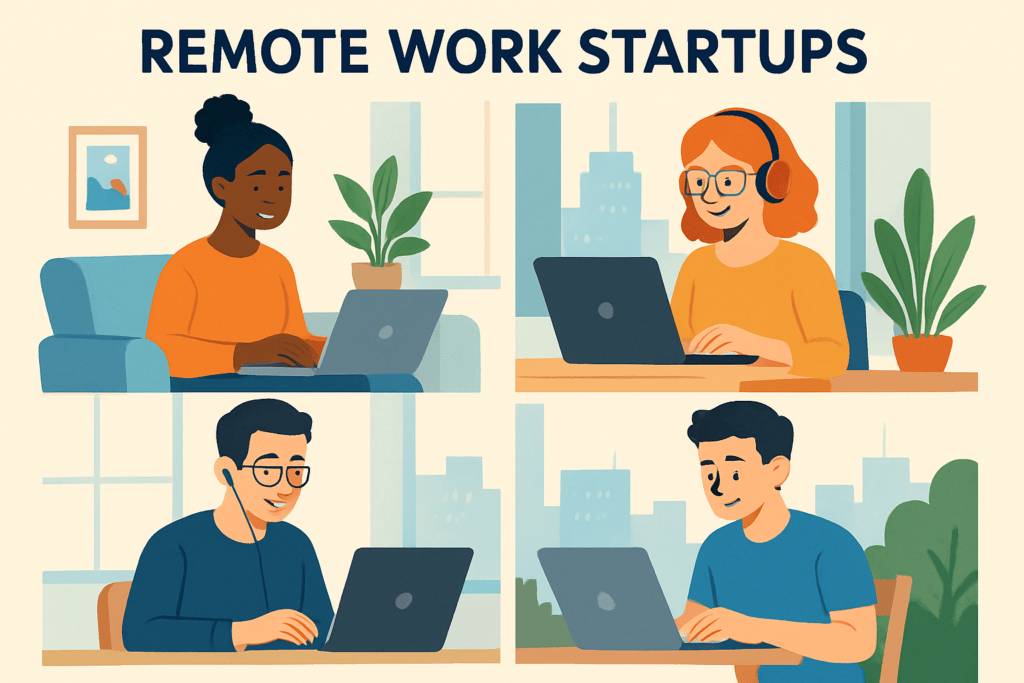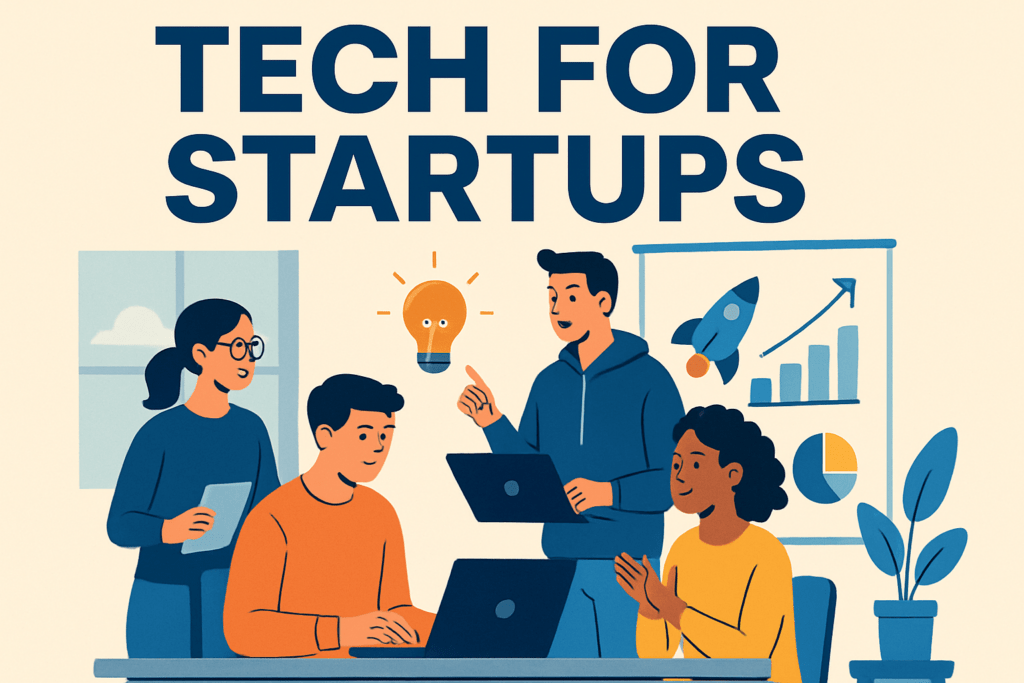Startup Trends 2025: What’s Shaping the Next Wave
- Quick intro on how fast the startup landscape changes.
- Set the stage: founders need to track startup trends 2025 to survive and thrive.
Startup Trends 2025: What’s Shaping the Next Wave
Blink and you’ll miss it. The startup world is a blur—what dominated last year gets replaced by what’s next, fast. If you’re building something from scratch, standing still isn’t an option; the only certainty is change. Founders hunting for breakout growth in 2025 have to keep one hand on the wheel and the other on the pulse of what’s changing—because tracking startup trends 2025 isn’t just smart, it’s how you survive. In this guide, we’ll strip it down and get to the point: what forces are reshaping the startup landscape, which trends are actually worth watching, and how you can stay ahead of the next wave.
The Big Picture: What’s Driving Startup Shifts Right Now
Startup life comes at you fast. If 2024 taught us anything, it’s that easy funding is dead (for now). VCs aren’t just throwing cash around; they’re choosing founders who show traction, resilience, and a story that stands out from the noise. Expect 2025’s capital game to favor startups with lean teams and strong, measurable product-market fit.
On the tech front, we’re in deep water. AI’s not just hype—it’s leading real disruption, reshaping everything from customer support to how products are built and delivered. Blockchain’s gone quiet on the headlines but keeps weaving itself into finance, contracts, and supply chains. Automation is swallowing repetitive work, freeing teams to move faster with less.
But tech isn’t steering the whole ship. Consumer attitudes are mutating, too. People want smarter, fairer, more ethical solutions—startups slow to pick up on these new demands are being left by the roadside. Younger consumers especially are favoring brands that actually walk the walk on purpose, not just splash it on their landing page.
Underneath all this, entrepreneurship itself is evolving. The days of “growth at all costs” are fading as founders recalibrate for durability over vanity milestones. Survival now means agility, grit, and a near-obsessive attention to what’s changing in the market. This is the state of play heading into 2025: less froth, more substance, and no time for startups with old-school blinders on.
Top Startup Trends to Watch in 2025
Let’s skip the fluff: if you’re not watching these five trends, you’re already half a step behind. Startups that want to last past 2025 need to get ultra-practical, leveraging tech, culture, and the planet itself.
1. AI Everywhere (and Smarter Than Ever):
Artificial intelligence isn’t just for the FAANG giants anymore. We’re seeing machine learning crop up everywhere: health startups using AI diagnostics, finance apps recommending smarter investments, and even creative tools spitting out original content on demand. But the secret sauce? Founders are finally blending AI muscle with human savvy—think AI-powered legal assistants with an actual lawyer’s intuition, or health platforms that use machine learning but rely on doctors to make the final call. The startups thriving now are the ones who see AI as a co-pilot, not a replacement.
2. Sustainability Isn’t Optional:
Eco-friendly isn’t some cutesy icing on the pitch deck anymore. It’s the flour, eggs, and sugar. Circular economy runs, cleantech accelerators, and waste-reduction platforms are popping up like weeds (ironic, given the green theme). If your business isn’t talking carbon savings or ethical sourcing, you’re probably missing out on deals—and user trust.
3. Work From Anywhere—And Build from Anywhere:
Remote work isn’t just Zoom calls in pajamas. Entire organizations are cloud-first, hiring world-class talent from wherever it pops up. Startups are ditching centralized offices for global playbooks and 24-hour productivity. And as seen in recent deep-dives, this shift in startup cultures is making teams faster, more diverse, and a lot more ambitious.
4. Modern Startup Innovations in Fintech, Health & Edtech:
“Disruption” isn’t code for chaos—it’s targeted upgrades in the places that matter most. Embedded finance lets any app become a bank. Virtual healthcare is going mainstream, not just for prescriptions but for diagnostics and mental health. Personalized digital learning has gone from nice-to-have to baseline. Micro-SaaS, niche business tools, and industry-specific vertical apps—this is what modern startup innovations really look like right now.
5. Trending Startup Ideas: Community, Niche, or Both:
Platforms that focus on hyper-local, community-driven services are thriving (think: local delivery, retail, even micro-logistics). Simultaneously, niche is big—people want platforms tailored to their smallest quirks. The best trending startup ideas blend these two: serving small, loyal user bases in unique communities, or going hyper-personal to do one thing absurdly well.
In short: Adapt to these trends or prepare for the sidelines. The game in 2025 isn’t “follow the leader”—it’s about spotting what’s next and getting there before everyone else.
1. AI Everywhere (and Smarter Than Ever)
AI isn’t just for Big Tech or sci-fi thrillers—it’s quickly becoming every startup’s secret sauce. In 2025, the best founders are finding ways to weave AI and machine learning into almost anything you can imagine, from automating patient intake at clinics to crunching real-time credit scores on the fly. It’s not just about replacing people, either; it’s about combining artificial intelligence with human judgment to tackle problems no algorithm can solve solo. That’s where the real magic happens.
The hottest startups are getting niche: think AI-powered legal research, custom financial planning, or even personalized content creation tools trained for micro-audiences. Generic solutions are out. Tailored AI is in. If you’re not thinking about how smarter machine learning can power your next idea, you’re risking irrelevance. The bottom line: in 2025, the startup winners are the ones who treat AI as an essential teammate, not just a buzzword.
What Happens After Winning Millions?
Winning a life-changing lottery jackpot is every player’s dream, but few are prepared for what comes next. While the sudden influx of wealth can bring excitement, it also ushers in a wave of challenges.
The Financial Reality of Winning
Many winners find themselves overwhelmed by financial decisions. Critical areas they must address include:
- Managing Taxes
A substantial portion of the winnings often goes to taxes, and failing to plan can lead to significant financial issues. - Financial Advice
Some winners choose to hire financial advisors to help with investing and budgeting. Without this guidance, they risk reckless spending that could deplete their fortune rapidly. - Investment Planning
Wise investments can secure a winner’s future, but improper planning can turn a dream into a nightmare.
Immediate Lifestyle Changes
A sudden fortune often leads to major lifestyle shifts:
- Luxurious Purchases
Many winners purchase luxury homes, exotic cars, and take extravagant vacations, but these come with their own set of challenges. - Social Dynamics
Friends and distant relatives might appear, hoping for a portion of the winnings, which can create tension and difficult decisions. - Privacy Concerns
While some choose to embrace their newfound wealth, others opt for a low-profile life to avoid the pressures and attention that come with sudden wealth.
Making a Lasting Impact
Beyond personal wealth, some winners see their fortunes as an opportunity to contribute positively to society:
- Charitable Donations
Some donate to charities or initiate community projects to help those in need. - Educational Support
Stories abound of winners funding scholarships or launching initiatives to support education. - Business Investments
Investing in businesses can create jobs and support local economies.
How winners handle their newfound riches determines their own future and the legacy they leave behind. Some become philanthropists, transforming their fortunes into a force for good, while others face financial downfall due to poor management.
3. Work From Anywhere—And Build from Anywhere
The era of “remote-friendly” is over. In 2025, remote is default. Startups are cutting HQ overhead and hiring the best, wherever they live—Buenos Aires coders working alongside Berlin marketers, all in real time. This isn’t just about Slack and Zoom anymore. Global, cloud-first operations are the new backbone: all-hands meetings happen in the metaverse, onboarding is async, and cross-border payroll isn’t a spreadsheet headache—it’s solved by specialized SaaS.
Startup cultures are evolving fast. Micro-teams spin up projects with only the talent they need, tapping global freelance pools, not just local job boards. The upside? 24/7 progress, local market entry on day one, and resilience if a region faces disruption. The challenge? Founders need to rethink management, collaboration, and trust. (Here’s a deep dive on how remote work is reshaping startup cultures; it’s a must-read.)
Location is now just a setting on your profile. “Build from anywhere” is the rule—and startups riding this wave are shipping faster, paying less for HQ perks, and scaling internationally without thinking twice.
4. Modern Startup Innovations in Fintech, Health & Edtech
Forget the old guard—modern startup innovations in 2025 are all about embedding intelligence and usability where people need it most. In fintech, “embedded finance” is hot: think non-bank companies hiding payments, lending, and insurance right into their apps, so checkout just happens—no need to open a different app or visit your bank. Everyone from gig platforms to B2B SaaS is jumping in.
Healthtech is keeping pace. Virtual healthcare is now routine, not radical. Startups are using AI to triage patients, automate diagnostics, and even personalize treatment plans for chronic conditions. No more bloated, monolithic EHRs—lightweight, specialty-focused tools that sync with wearables or at-home testing are coming to a clinic (or phone) near you.
On the education front, personalized digital learning is the name of the game. Edtech founders are leveraging data and adaptive content to give learners real feedback, not one-size-fits-all lessons. Bonus: micro-SaaS tools and highly vertical apps are popping up everywhere, each one tailored for a super-specific audience—a music theory nerd here, a dental assistant there. The message? Modern startup innovations thrive best when they ditch generic solutions and go deep, not wide.
5. Trending Startup Ideas: Community, Niche, or Both
Some startup trends in 2025 are surprisingly grassroots. Forget the “go big or go home” attitude—today, there’s real heat in going deep into your own neighborhood, hobby circle, or interest group. Demand is rising for services tightly tied to local communities: think curated food delivery from the block, micro-logistics that solve the “last street” hassle, or retail platforms for city-specific makers. Bigger isn’t always better when customers just want things close and connected.
On the flip side, niche platforms—especially the digital kind—are thriving too. Hyper-personalized apps and services, whether for a rare health issue or a passionate fandom, cut straight through noise and win loyal crowds. It’s about serving fewer people, but serving them intensely well. Some of the hottest trending startup ideas this year, in fact, mix both: localized, community-first platforms with obsessive attention to a specific interest or need. For new founders, that’s your in—the tighter the focus, the louder the resonance.
Redefining Entrepreneurial Success
Let’s get this straight: chasing massive VC rounds and sky-high valuations doesn’t mean you’ve “made it” anymore. In 2025, founders are rewiring what winning looks like. You’ll see more startups spotlighting impact, not just dollars—think carbon saved, communities sustained, teams treated right. Expect pitch decks to brag about culture and ethics alongside MRR.
The new mantra is sustainable scale. Fast growth at any cost is old news. Building a healthy company that lasts (and actually does something good for the world) is what counts. Founders who get this will find themselves ahead—because in the long run, reputation and real impact will outplay raw numbers every time.
Where to Get More Startup Intelligence
Hungry for more data and deeper dives? Stay sharp by regularly checking industry media—there’s always something new on the horizon, and the freshest trend today might be old news next quarter. Leading outlets like Forbes on startup trends break down global moves, sector spotlights, and the stories behind startup surges. If you’re building, investing, or just plain curious, these sources are a solid way to stay ahead of the next wave. Don’t just rely on your gut—read, scan, and stay plugged in.
Wrapping Up: Stay Nimble, Stay Curious
Here’s the bottom line—don’t get comfortable. The ground under startups in 2025 is never still, and the winners will be those who stay sharp and adapt faster than the rest. Tracking startup trends 2025 isn’t just a nice-to-have—it’s your roadmap for spotting opportunities before they become crowded highways.
Keep your curiosity in overdrive. Keep your teams lean, your assumptions flexible, and your ears to the ground. Innovate with purpose, and success will follow.




